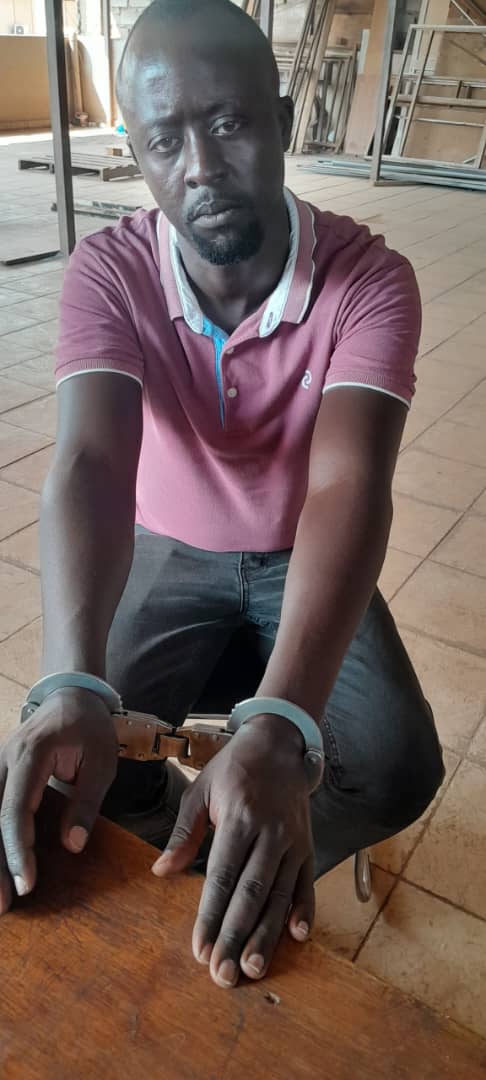People arrested under Uganda’s 2023 Anti-Homosexuality Act (AHA) face stigma, abuse and even rape in the nation’s prisons and police cells. Such cases have increased as more people are arrested under the law’s provisions.
Attorney Ronald Abitegeka says he got at least one client who reported being raped shortly after he was detained under the law. Abitegeka works for ALIGHT Uganda (formerly American Refugee Committee) an NGO in the Isingiro district that operates in six refugee settlements, five transit centers, and border points.
ALIGHT Uganda’s work includes monitoring refugee settlements and inmates. His client wishes to remain anonymous for security reasons.
The Attorney says rape cases are common but rarely reported to the police, victims are denied medical treatments, and accusations are not investigated. Rarely, however, does someone stand up to authorities.
“I was very much surprised at my client’s courage to find justice after he was raped during detention,” says Abitegeka. “Unlike other victims, my client and his close family members were determined to pursue justice, trying to beat all odds.”
Abitegeka explains that despite the overwhelming number of cases of gender-based violence reported, few get resolved in favor of the victims. However, he is optimistic that his client’s case will see light.
Since the adoption of Uganda’s Anti-Homosexuality Act 2023, people continue to be targeted for arrest and abuse. Earlier this year, more than 90 youths were arrested during a march-to-Parliament protest in Kampala and were charged with various offences, including being “idle and disorderly” and being a “common nuisance”, according to the charge sheet produced in court.
Unfounded rumors circulated that the protests were funded by foreign agents upset over the Anti-Homosexuality law, and several protesters detained said they were sexually assaulted as “revenge” while in custody.
When sexual violence occurs in prisons or police cells, it puts additional shame on those arrested, experts say.
Some human rights advocates are starting to speak out too. In a series of posts on X earlier this year, Ugandan activist Jim Spire Ssentongo demanded that police respond to accusations of abuse while in detention. Ssentongo shared screenshots with messages he says were from former inmates who narrated sexual and other abuses at the hands of police officers.
“Uganda Police, come out and talk about these allegations of young boys/suspects being ‘sodomized’ by your officers under police custody. We can’t let this pass just like that,” he wrote on his X handle on July 24.
One accusation of police brutality towards LGBTQ+ prisoners came from Ronald Agaba, a gay activist who was arrested by state operatives on March 14 for protesting against corruption in Parliament Speaker Anita Among’s office.
“I thought I would never smile or be free again,” Agaba wrote on X, with a graphic description of sexual abuses and beatings.
Jimmy Kabiito, an activist working with Human Rights Awareness Promotion and Forum (HRAPF), a local NGO, says sensitization and education are needed so that law enforcement officers understand that such abuses targeting LGBTQ+ people violate basic human rights. HRAPF provides legal services to support minority groups.
“It is very true that Trans people in Uganda are targeted and raped in police cells and prisons and by other homophobic people just to traumatize them and to ‘prove whether they are gay’.
Others are raped because they are believed to have money and that they are funded by the whites,” Kabiito says.
Kabiito says these crimes, rooted in misinformation and myths, should be thoroughly investigated by police and other security organizations.
Instead, Kabiito says law enforcement officials sometimes collaborate with medical doctors to fake medical forms that deny justice for victims by removing all physical evidence of abuse.
Uganda Prisons spokesperson Frank Baine said in a phone interview that most of the abuse claims were baseless.
“Whoever alleges must prove,” Baine said, alleging that most complainants make abuse allegations against police in hopes of court-ordered financial settlements or to claim asylum in Europe or Canada.
Sexual and gender-based violence continues to be one of Uganda’s most pressing human rights challenges, with far-reaching impacts on individuals and communities beyond LGBTQ+ people.
A 2021 report by the Uganda Bureau of Statistics (UBOS) revealed that one in three women aged 15 to 49 has experienced physical or sexual violence.
The Uganda Police Force’s 2023 annual crime report further underscores the severity of the situation, documenting over 17,000 cases of domestic violence, many of which involved sexual violence.
“These alarming statistics only scratch the surface, as numerous cases go unreported due to fear of stigma, retribution, or distrust in the justice system,” the report indicates.



